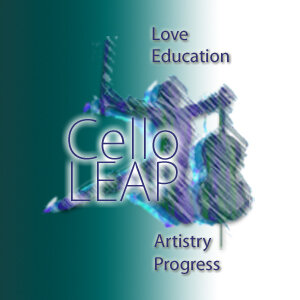“Where love is deep, much can be accomplished.”
“If children hear fine music from the day of their birth and learn to play it, they develop sensitivity, discipline and endurance. They get a beautiful heart.”
Shinichi Suzuki
A Comparison of the Suzuki and Traditional approaches to musical study
Early Beginning
Stresses an early beginning. Pre-instrumental, informal music education may begin at eighteen months to two years of age. Instrumental training may begin at as early as three years. Older students can be equally successful, with good guidance and encouragement from parents.
Later Beginning
Later beginning, usually in the 4th to 6th grade, in a school program. Private instruction often an adjunct, to learn orchestra pieces, rather than the skills set needed to play an instrument well. Suzuki Students may begin later, but emphasis will be on playing skills, through repertoire,rather than orchestra music alone.
Every Child Can!
Every Child Can! This belief is the cornerstone of the Suzuki approach. All children have ability to learn music, and that musical study develops the whole child. Every child AND every adult learner can benefit from a supportive learning environment!
Musically “Gifted”
Teaching focus is on the musically "gifted". Other students are not encouraged as frequently.
Suzuki “Triangle”
The Suzuki "Triangle" is defined by a three-way relationship between child, teacher and PARENT!! The active, daily involvement of parents in teaching music to their children ensures their success. The only requirement is a sincere interest in working with your child. Older beginners may need your help for a shorter duration, but your initial support is crucial.
Lack of Parental Support
Parental involvement is very limited, and at times even discouraged.
Mother Tongue
The "Mother Tongue" approach stresses that music is an auditory art, and musical skills are taught in much the same way that children acquire language. First, through listening, then through "speaking" (playing), and finally, through learning to read music and “de-coding”.
Pre-mature Symbol Analysis
Music reading skills are emphasized first, and the belief that a foundation of piano playing helps to lay the foundation of musicianship, rather than training the ear and body. Reading considered more important than ear training and physical training.
Community Building
Skill building through Group Lessons in addition to the private lesson. Repetition and a common repertoire foster the skill of playing together in a group. Taught on a weekly basis, music is thoroughly learned and prepared. Listening skills, leadership and team skills are developed.
Isolation
Emphasis is on "progressing" through etude and method books, rather than on skill acquisition. Polished musical performances are a rarity, and memory skills are rarely emphasized, resulting in performance anxiety.
Sharing and Personal Growth
Regular performances and workshops foster confidence, ease performance anxiety, and promote a sense of music as a gift to others.
Cut-throat Competition
Performances are sporadic, results driven, and generally granted as a result of competition, rather than preparation.
Intrinsic Motivation
Motivation is INTRINSIC, not based on a reward system, overt competition with others, or "giftedness" in music. Making music becomes its own reward, and the enjoyment of creating sound for life long fulfillment becomes an integral part of our human experience.
Extrinsic Motivation
Extrinsic motivation. Prizes, competitions, and auditions are the motivators to practice, rather than the joy of the music itself.
Mind-Body Connection
Trains the body and the mind, as well as the ears. Playing an instrument is as much an athletic endeavor as any highly skilled sport. A working technical foundation is the means whereby the student learns the mechanics of playing.
Remediation and Correction
Corrective self-focus and remedial learning, rather than a positive learning environment is the usual pedagogical approach, and varies greatly depending on the teacher's skill. The student learns to focus on what they are doing "wrong", rather than on what they do well and building on that.
Building Skills through Pieces of Music
Positive, individually paced instruction. Each child has different learning styles and strengths. A highly trained and experienced teacher of the Suzuki approach knows how to tailor sequencing to meet the needs of the individual student.
Random Repertoire
Literature and assigned pieces vary greatly from teacher to teacher and depend on the teacher's ability to assign repertoire appropriate to the student. An inexperienced or poorly trained teacher will chose material that is too difficult for the student to play well.
Holistic Approach
The goal of Suzuki education is to educate the whole human being so that he/she may become not only a music lover, but a whole, loving, responsible, and happy citizen. Dr. Suzuki’s vision is to create human beings with ’’beautiful hearts’’.
External Approach
Often, the goal of musical training is to be able to compete successfully at the expense of the child's holistic experience of music, and deeper, internal music and spiritual development.











